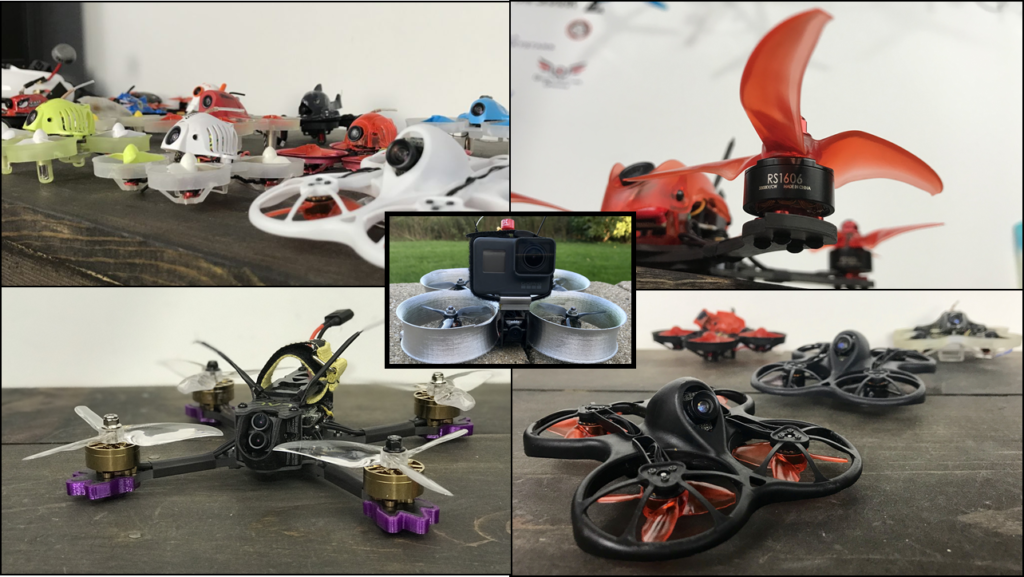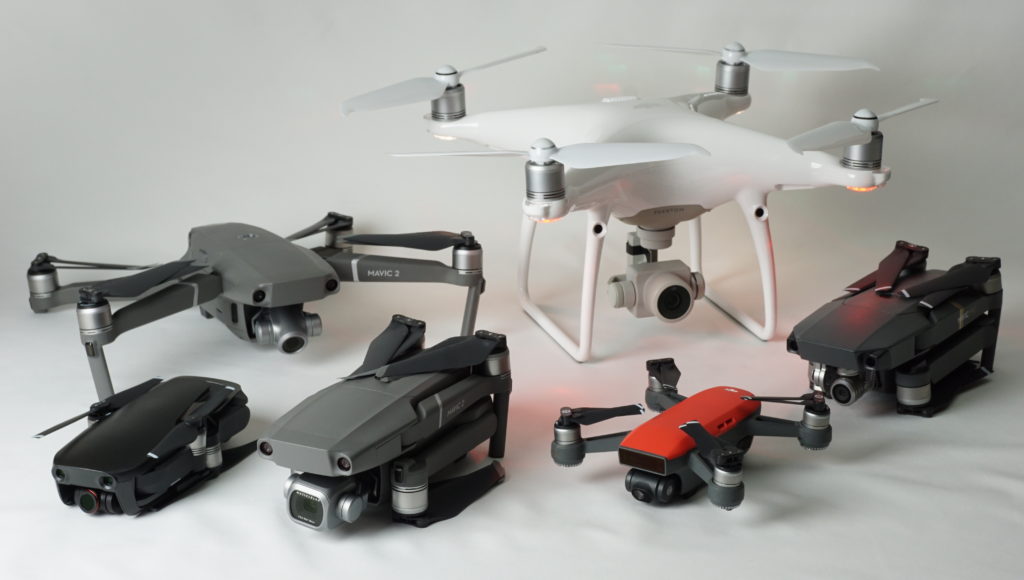If you are new to flying FPV drones then you very well may be wondering what the heck everyone is talking about. There are cinewhoops, tiny whoops and power whoops. There are toothpicks and twigs. A five-inch drone is clearly bigger than five-inches. What are people talking about? And FPV pilots rarely refer to their crafts as drones. They are quads and even sometimes kwads. Let’s break down the code.
It isn’t a drone. It is a quad or maybe a kwad.
Most FPV pilots don’t refer to their craft as a drone but rather a quad. Quad being short for quadcopter, referring to the four propellers. Sure we know that it could have more, but typically they have four. To many pilots, the term drone carries a negative connotation and they just prefer the term quad. The rotor riot guys coined the term kwad and that has become popular in the FPV community. There are lot of different types of FPV quads out there. Let’s take a closer look.
The Whoops
When someone refers to a whoop they are talking about a drone that has ducts. Ducts are a particular type of propeller guard. They offer excellent protection and often help stabilize the drone, make it more efficient and even quieter. It was made popular on inexpensive toy grade drones. Jesse Perkins started the Tiny Whoop craze by putting a camera on an Inductrix.
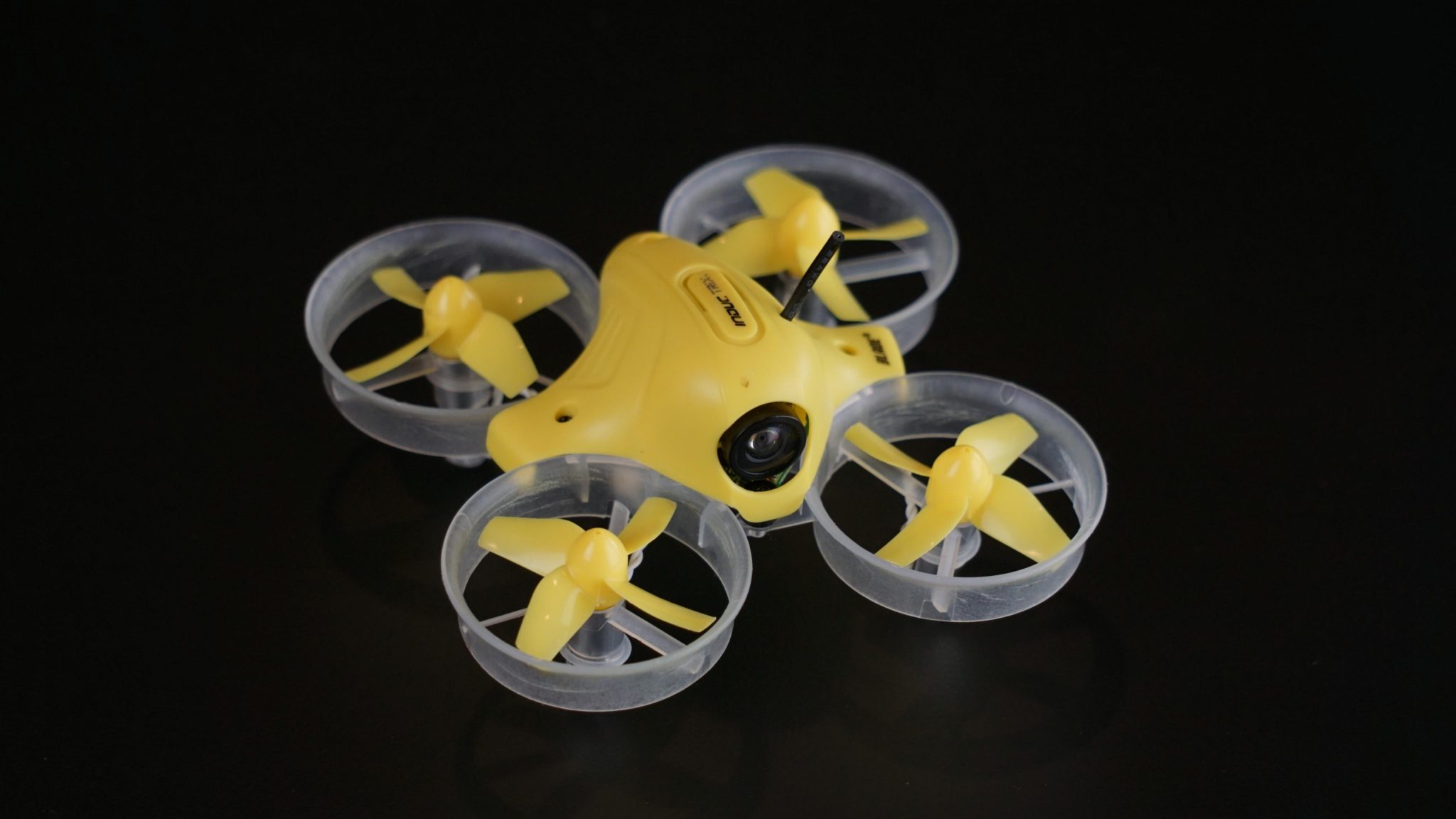
It quickly became popular as it was extremely durable and could be flown indoors. Tiny drone races started popping up around the country. Soon Tiny Whoop became the generic term for any small ducted drone. Tiny whoops started to evolve and became bigger and better. The rule of thumb is that a “Tiny Whoop” is a palm-sized drone and has a wheelbase of 65-75 mm and are limited to flying on a 1S battery. Tiny whoops often will weigh less than 30 grams without a battery.
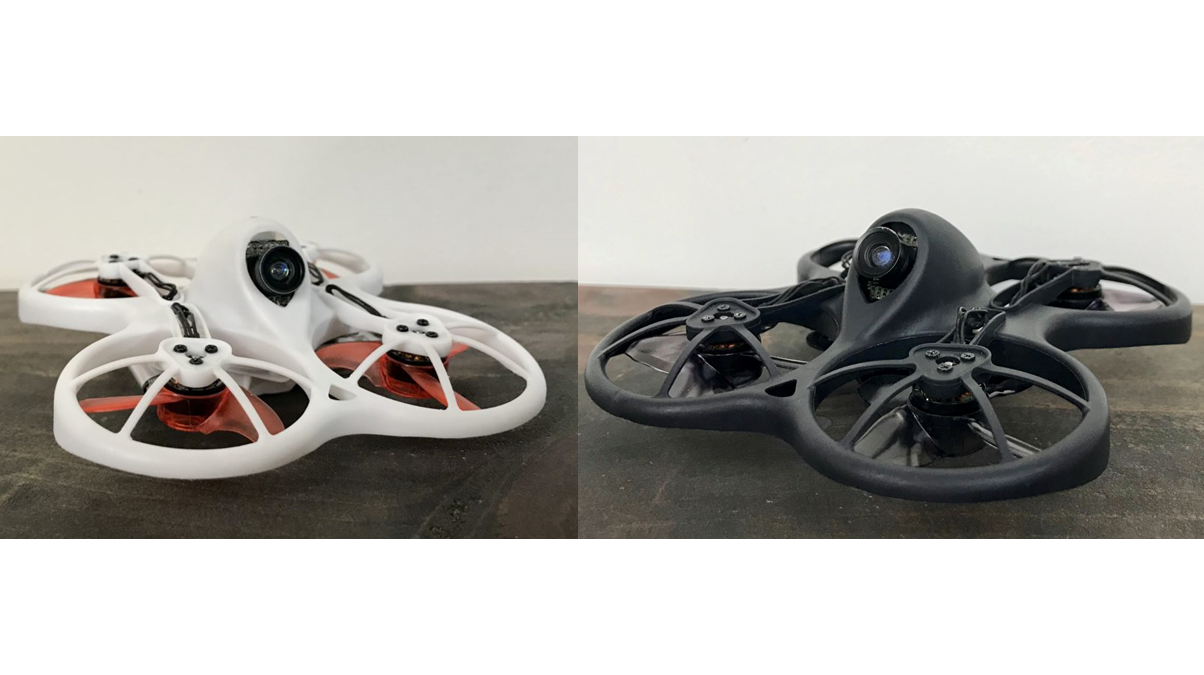
My absolute favorite “Tiny Whoop” is the Emax Tinyhawk. It is incredibly durable and fun to fly. For about $90 it is an excellent place to start. Emax even built the perfect beginner kit including the drone, remote, goggles, batteries, charger and case for about $150. But of course, people wanted more power. Tiny whoops started to get bigger and faster.
| Check the price of the Original Tinyhawk on Amazon | Check the price of the original Tinyhawk on Banggood |
That is where the power whoops started. The “Tiny Whoops” grew bigger and bigger. The Mobula 7 paved the way for small, lightweight but powerful whoops that could handle 1S or 2S batteries. People wanted to fly on more powerful 2S and 3S batteries. They grew in size from 75-95 mm. Basically a Power Whoop is nothing more than a more powerful and often larger Tiny Whoop. Personally I prefer the 2S versions as you can still fly them inside but have more power outside.
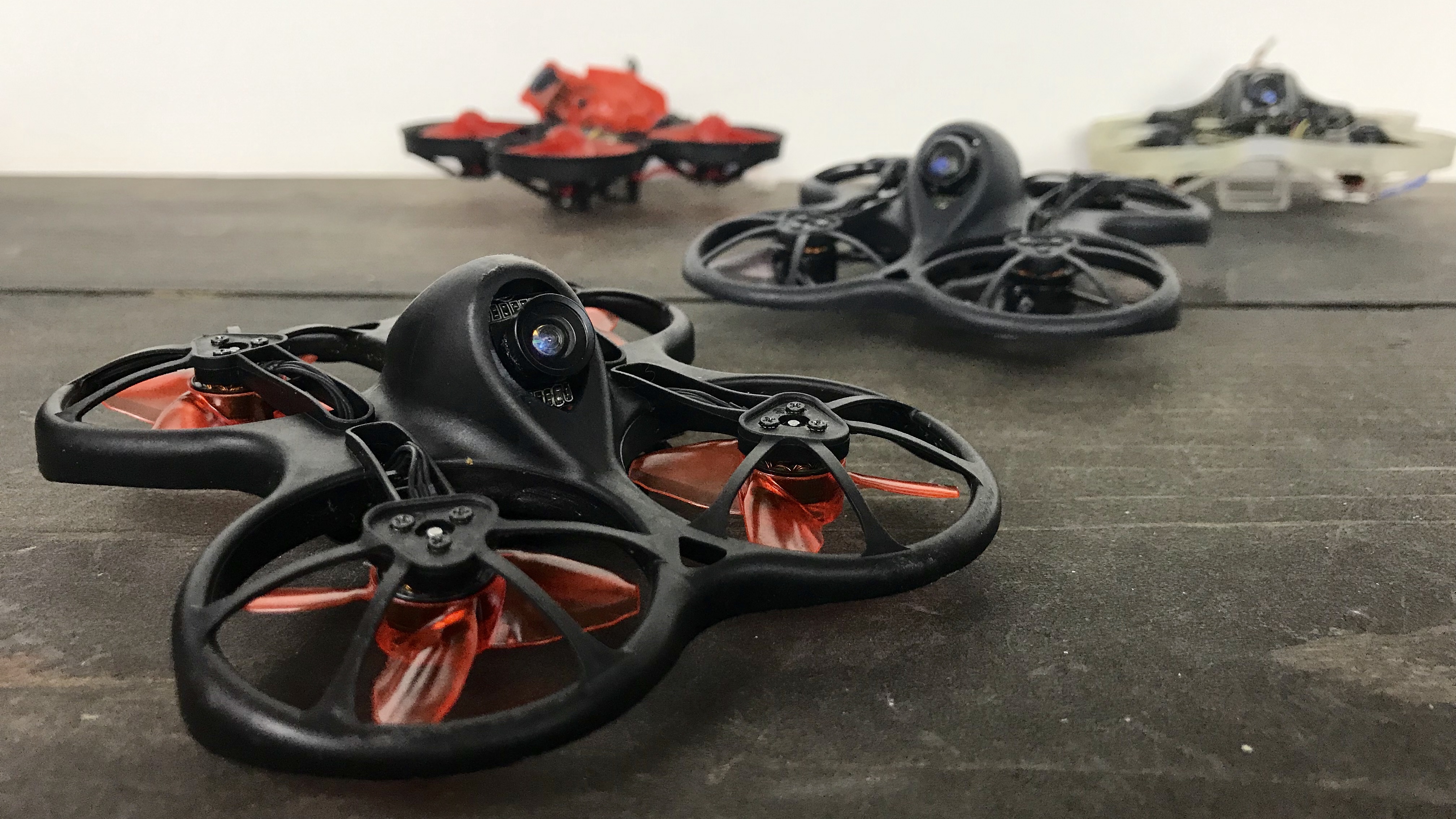
Emax again makes my favorite “Power Whoop” with the Tinyhawk S. It is a beefed-up version of the original Tinyhawk except that it has a more durable frame and it can handle a more powerful 2S battery.
| Check the price of the Tinyhawk S on Amazon | Check the price of the Tinyhawk S on Banggood |
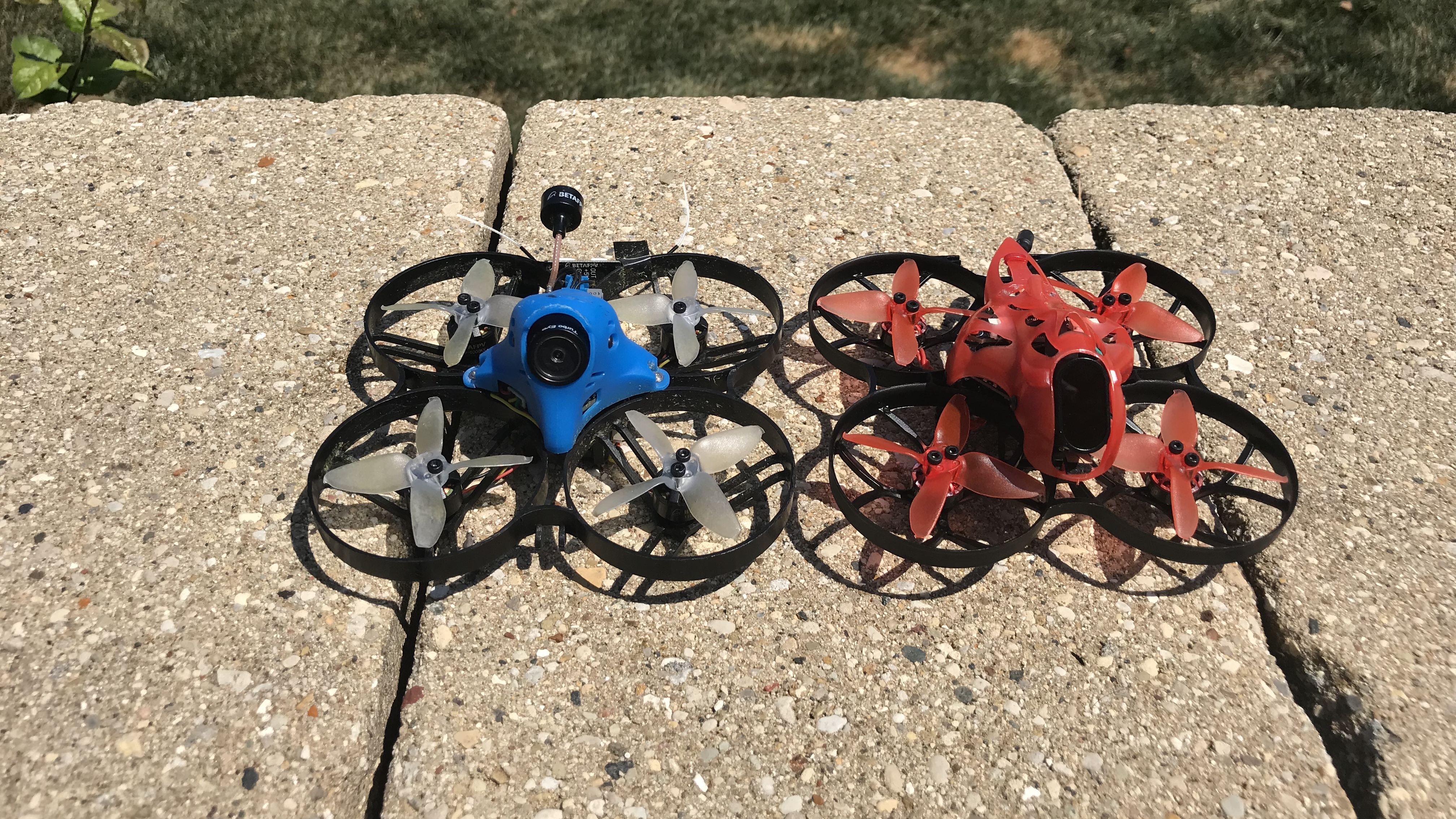
Cinewhoops evolved from Power Whoops. People started putting HD cameras on their Power Whoops and realized that you could get some spectacular footage from a little drone. The Eachine Cinecam was the first 4K version, ready-made version and was a giant hit. People realized that these drones could be used to capture cinematic footage that no Mavic or Phantom was capable of. NurkFPV and Shen Drones developed a larger cinewhoop to carry a GoPro for more professional footage. After seeing what they could do I had to build one myself. They are awesome tools. Check out the video below.
| Learn more about the Eachine Cinecan | Learn more about building a Cinewhoop |
What is an FPV toothpick drone?
Toothpick drones were started by Bob Roogi, aka KabobFPV. A dentist with a passion for flying lightweight FPV drones he wanted something that could perform like a full-size FPV drone but was much smaller and lighter. He started by using a lot of the same components that were found on Tiny Whoop style drones but removing the ducts and using larger propellers. These small, lightweight drones were much more agile than a Tiny Whoop. The incredible power-weight ratio made these little drones a blast to fly. Toothpicks typically weigh less than 50 grams and can fly on 1S or 2S batteries.
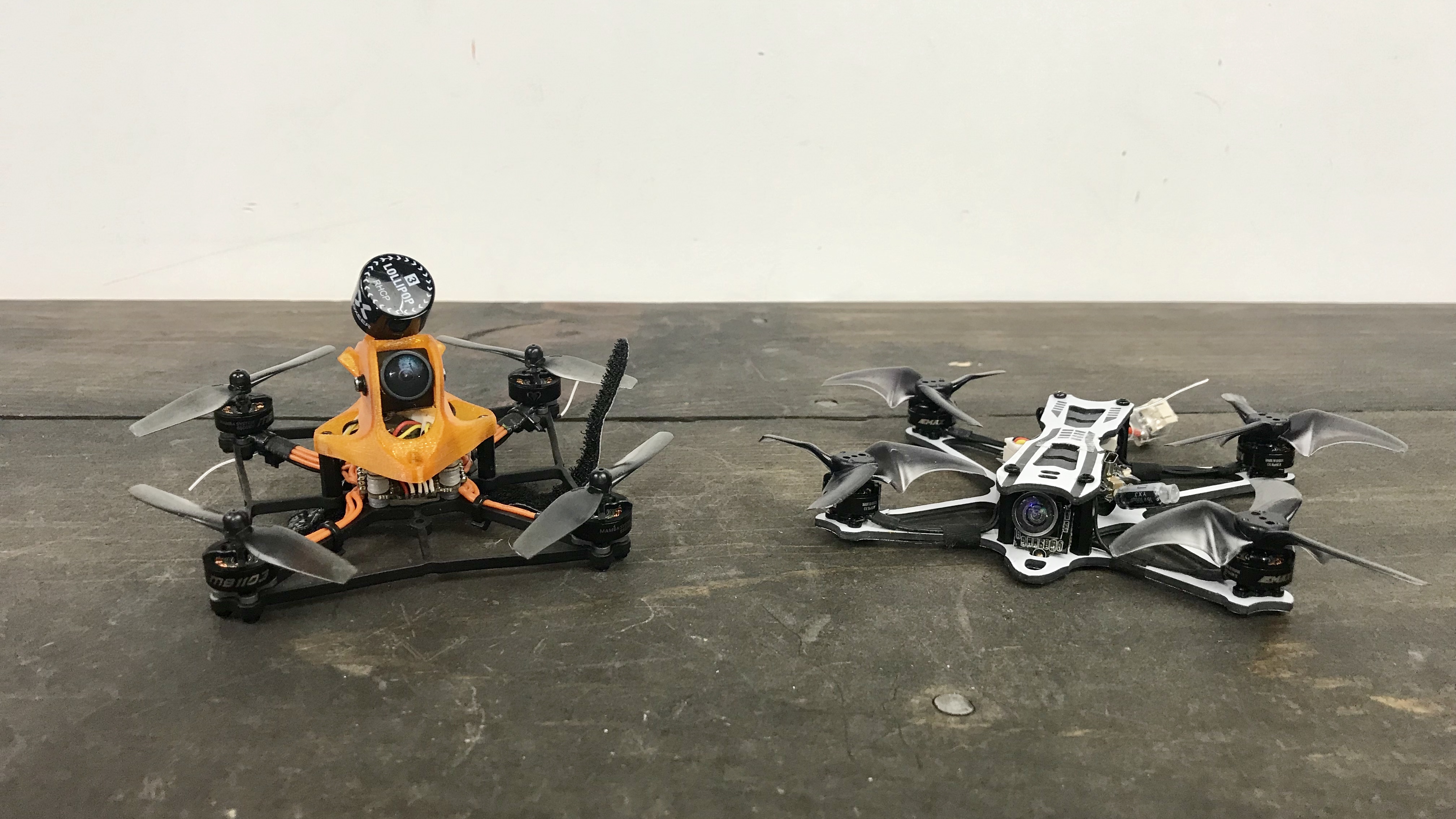
Emax again makes an excellent toothpick with their Tinyhawk Freestyle. It is the best toothpick for a beginner. It is very durable and also affordable. The Tinyhawk Freestyle is ready to go out of the box and is a great value at around $100.
| Check the price of the Tinyhawk Freestyle on Amazon | Check the price of the Tinyhawk Freestyle on Banggood |
However, my favorite toothpick is the Diatone GTB229. The Diatone is a little expensive at around $120 and you’ll have to add your own receiver. It has fantastic performance and feels locked in when I’m flying it. It was a collaboration between KabobFPV, the toothpick creator and Diatone.
| Check the price of the Diatone 229GTB |
Toothpick to twig?
Twigs are the evolution of toothpick drones. They are bigger and faster. They can handle 2S, 3S and sometimes even 4S batteries. I believe it started with the Speed Racer Twig from Racer X FPV. Generally, they weigh between 50-80 grams and have 2-3″ propellers. I’m sure in time someone will even build a 6S twig. And because they are bigger and more powerful people have started adding small HD cameras so we have the beginnings of CineTwigs…
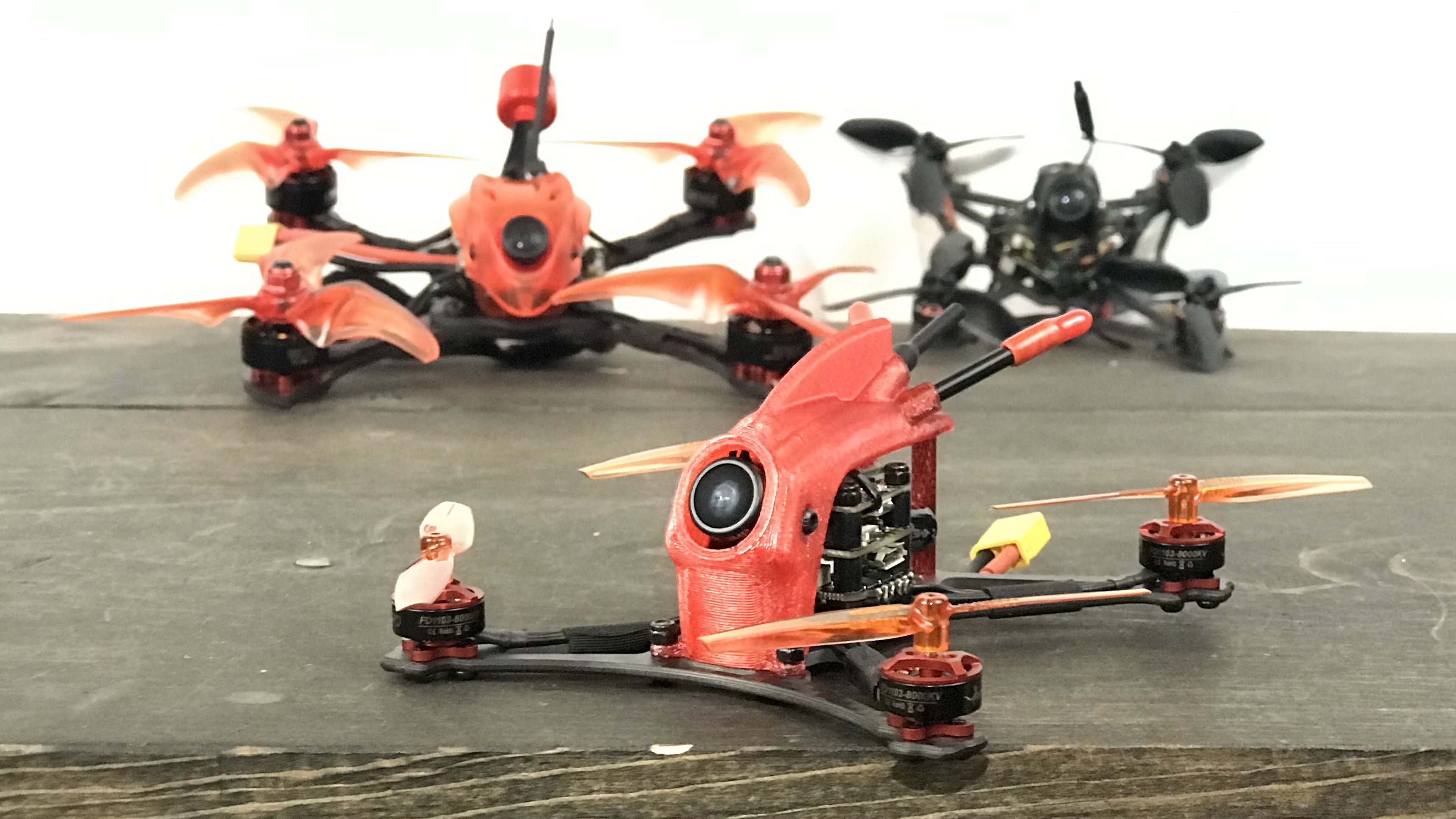
My personal favorite twig is either the Happymodel Larva X or the HGLRC Parrot 120. The Larva X is one of the smaller Twigs out there. It has an onboard DVR connected to the VTX (video transmitter). It can capture your FPV flights on the DVR and is almost as small as a toothpick so it can fit in tight places.
| Check the price of the Happymodel Larva X |
The HGLRC Parrot 120 is a bigger twig. It is more powerful and has a full 20 x 20 stack inside. It’s like someone took a full size FPV freestyle drone and shrank it down. It performs really well and is incredibly agile.
| Check the price of the HGLRC Parrot 120 |
Twigs and toothpicks are probably my favorite style of drone. They are fun to fly and I can practice my freestyle or acro flying without drawing a crowd of people. They are quieter and safer than larger 5″ drones. So what is a 5″ drone?
Five-inch FPV drones are bigger than five inches
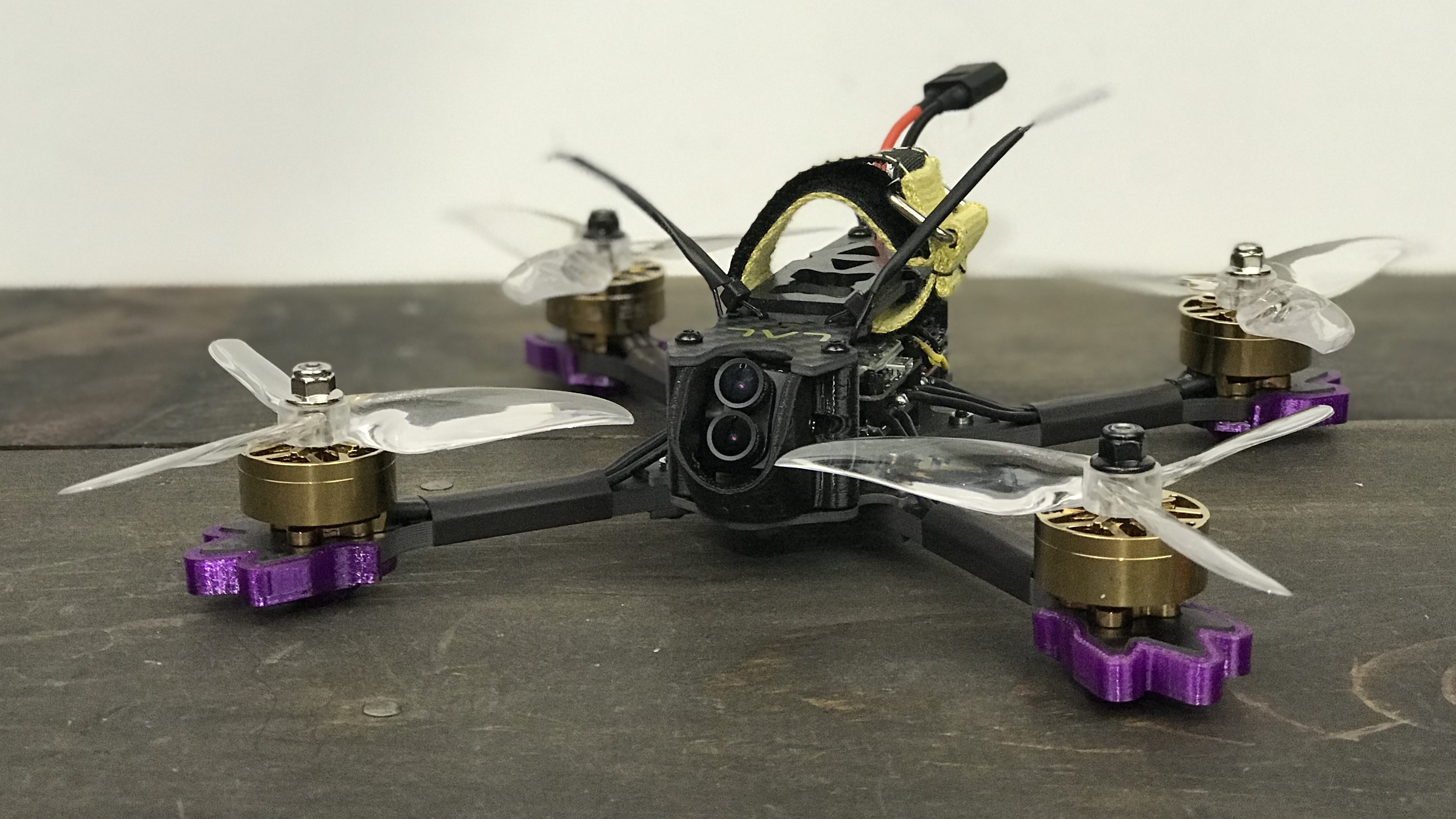
Often times pilots will refer to their drone by the size of the propeller. A five-inch drone has a 5″ propeller. A four-inch drone has a 4″ propeller. A three-inch drone has a 3″ propeller and so one. Five-inch is the “standard” FPV race drone size. These drones are big and powerful. They can hit speeds upwards of 100 mph. Five-inch FPV quads are no joke.
The new DJI digital FPV system has really changed the way people fly. The new HD camera and FPV feed is fantastic and makes for an awesome experience. However, it will cost over $1000 to get started with DJI. The new Emax Hawk Pro or Hawk Sport is my suggestion for anyone looking for a good ready-to-fly 5″ drone.
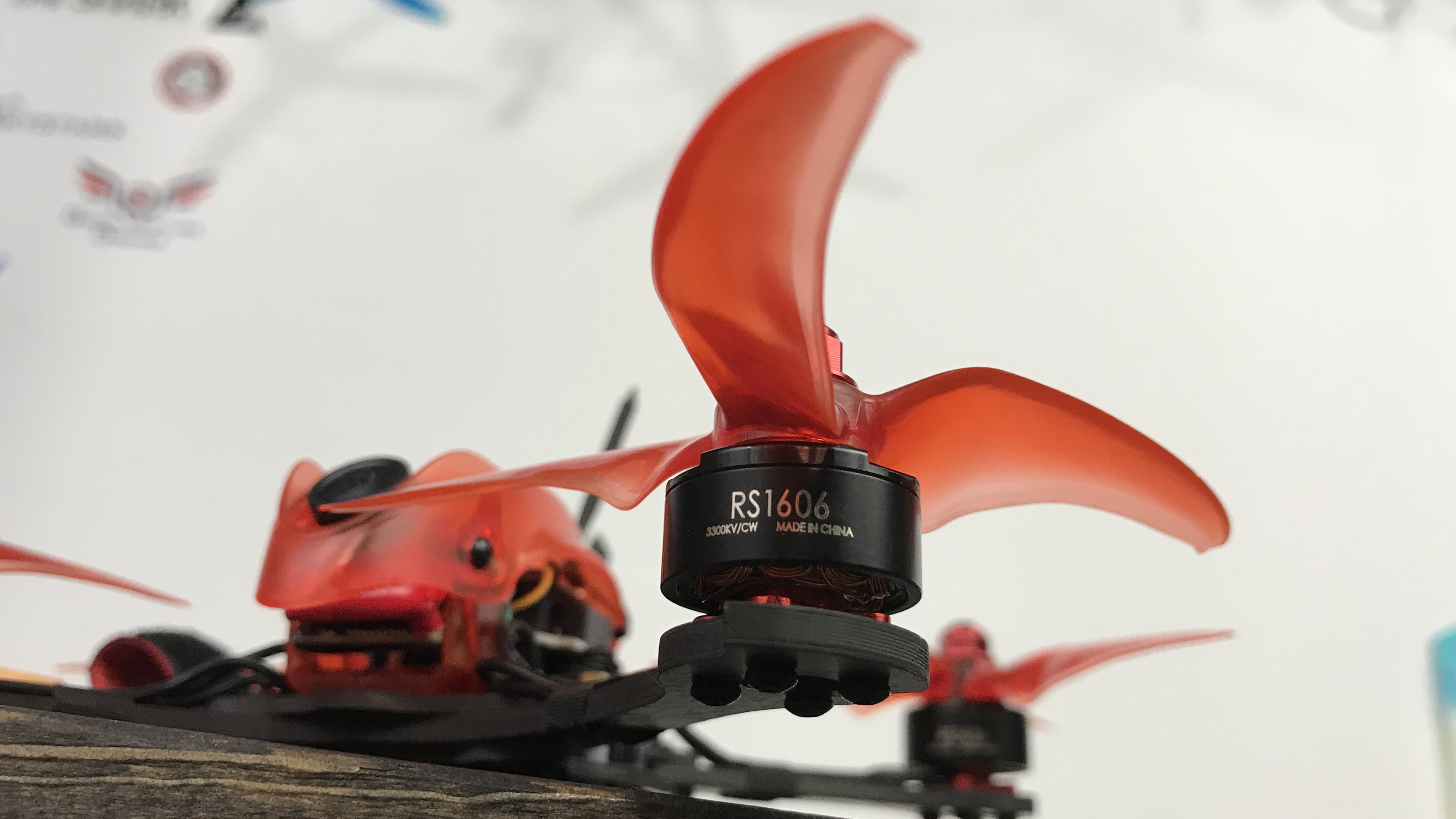
| Check the price of the Emax Hawk 5 on Amazon | Check the price of the Emax Hawk 5 on Banggood |
I don’t recommend that pilots that want to get into flying FPV start with a 5″ quad. Two-inch or three-inch drones are probably better places to start. I absolutely love my Emax Babyhawk 4″ drone. It can do everything a 5″ can do and it is just a bit smaller. For the true beginner, I’d recommend starting with a smaller and lighter drone. Toothpicks, twigs, and whoops are all excellent quads to start. If you are new to flying FPV then start small and work your way up.
Thanks for visiting Half Chrome
Make sure you check out our YouTube channel so you can stay up to date with all things drone. Whether it is an aerial photography machine from DJI or a lightning-fast FPV racer we have you covered. We also use Facebook, Instagram, and Twitter to keep our readers and viewers up to date.
If you want to buy a drone we highly encourage you to use the links in the article above. By using them we’ll make a small commission but won’t cost you anything extra. It is how we are able to keep producing content for you. Check out our shop tab at the top for deals from Amazon, DJI, Banggood and more.
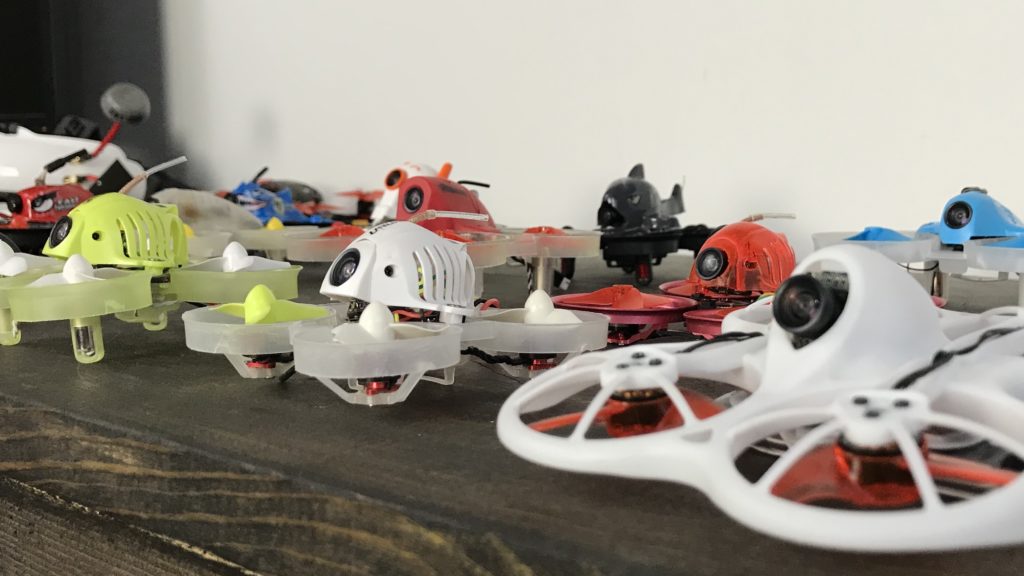
Make sure you check out some of our more popular pages like Best Drones Now, Aerial Photo Tips, Top Accessories and All Things FPV. Happy Flying.
Disclosure:
This website contains affiliate links, which means we receive a commission if you make a purchase using these links. For full details visit the disclosures and disclaimers page.

